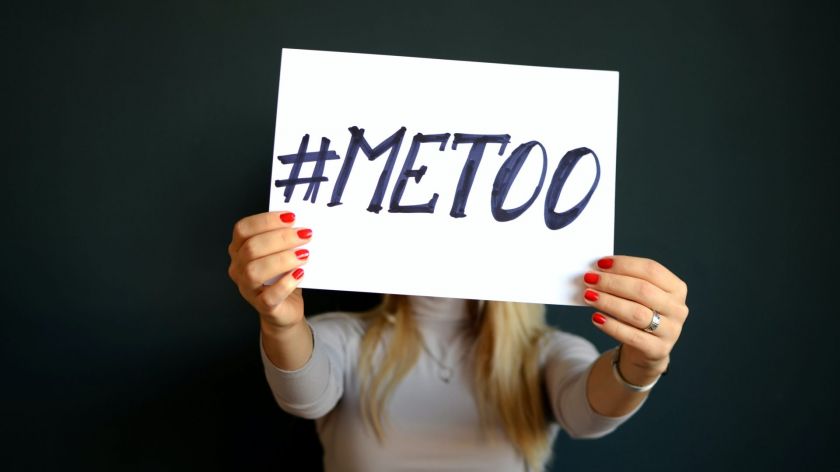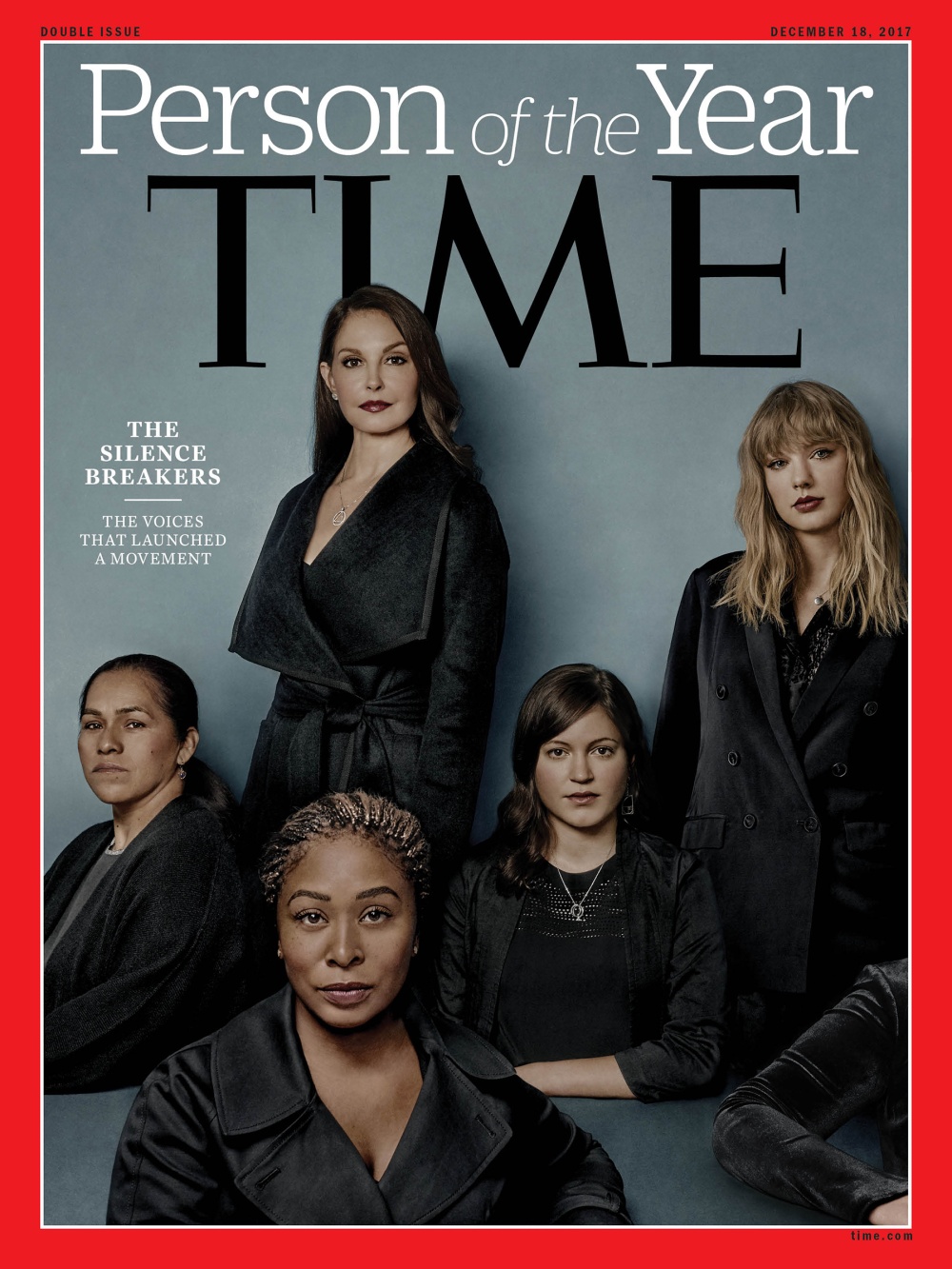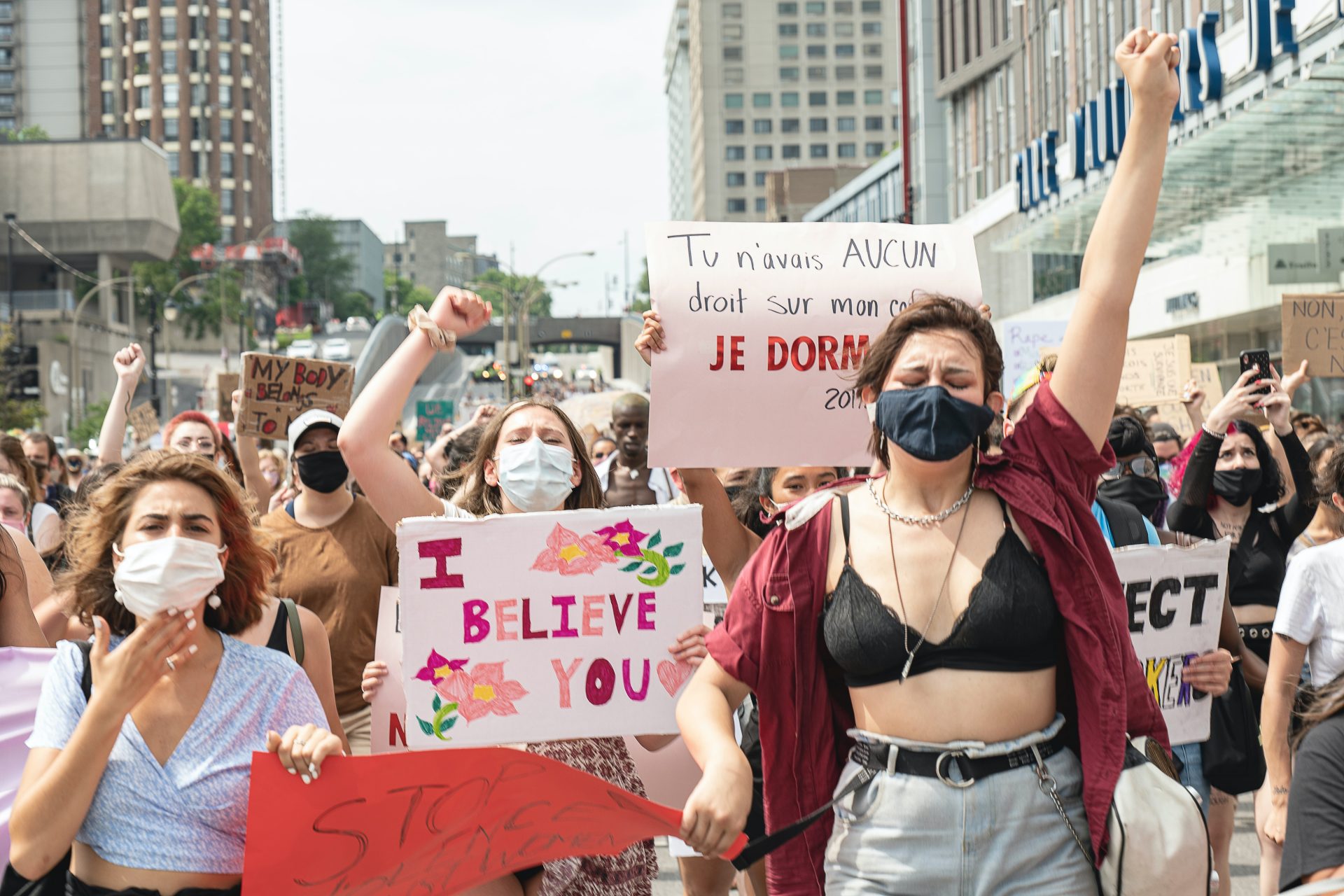-
 Photo via unsplash
Photo via unsplash
Five years ago, the hashtag #MeToo went viral. Millions of people shared on social media their story of sexual harassment, assault, and rape. What has changed since? And what still has to change? ‘Historically, we crossed a threshold, but it’s still a very young movement.’
On 5 October 2017, The New York Times published the news that film producer Harvey Weinstein had for years been guilty of sexual abuse. Actresses Rose McGowan and Ashley Judd were two of the first to speak out, later joined by dozens of women. That same month, the hashtag #MeToo went viral. Inspired by a tweet by actress Alyssa Milano, millions of people shared their story of sexual violence online.
New Vox
This blog can be found in the new Vox magazine, a special on transgressive behaviour. You can find the magazine in the stands around the campus, or you can read it online.
In the wake of the news about Weinstein, one story of sexual abuse after another is being brought to light. The #MeToo movement is forcing people around the world to talk about transgressive behaviour. Five years later, the question is: Where do we stand? How has the movement impacted society, and what problems is it still facing?
Historical turnaround
The #MeToo movement was a historical turnaround, no more and no less than that,’ says Renée Römkens, Emeritus Professor of Gender Based Violence at the University of Amsterdam, and former director of the Atria Institute on Gender Equality and Women’s History. ‘This movement revealed for the first time the extent of the problem. It instantaneously dispelled the myth that sexual harassment was a private issue. Instead, it revealed it incredibly clearly as the societal problem that it is.’
For women, the impact was huge, says Römkens. While sexually transgressive behaviour had for a long time remained under the radar, the #MeToo movement cleared the way for openly talking about it. ‘Conversations about this kind of misconduct had for a long time been marginalised. Now the social media offered a huge podium for talking about things that used to be swept under the carpet.’
‘For the first time, powerful men had to pay the price’
In academia too, the #MeToo movement has had an important impact, says Nijmegen Professor of Organizational Behaviour Yvonne Benschop. Over the past years, abuses have come to light at universities across the Netherlands. Benschop believes that this is precisely the result of the #MeToo movement. ‘It was no longer acceptable that misconduct could occur and go unpunished.’

For some men, this had serious consequences: they were charged, sentenced, or fired. Römkens: ‘For the first time, powerful men had to pay the price, whereas in the past, they were always able to use their position of power to intimidate others and get away with it. Think of rapper Ali B, who was accused of rape by a candidate from The Voice. According to the victim, he explicitly said that he wasn’t scared, because even if she were to speak up, no one would believe her.’
Main actors in the #MeToo movement
Tarana Burke
You’re not alone. That’s the message of the American civil rights activist Tarana Burke, founder of the #MeToo movement. Burke has fought for victims of sexual violence for nearly three decades, and she’s known for her tireless activism on behalf of black girls and women.
Hollywood Silence Breakers
Dozens of Hollywood women, including Lupita Nyong’o, Gwyneth Paltrow and Angelina Jolie, spoke up about the decades-long misconduct of film producer Harvey Weinstein. Time magazine has referred to them as The Silence Breakers. In 2017, the magazine named the actresses, Tarana Burke, and other silence breakers Person of the Year.
Anke Laterveer
Two years before Alyssa Milano first tweeted about #MeToo, another hashtag went viral in the Netherlands: #ZegHet. The initiative came from author Anke Laterveer, who filed an official sexual assault complaint, only to be told by the police that they could do nothing about it. Out of frustration, she called on others to share their story, a call that received a huge response.
Paradox
And yet, there’s still a lot of work to be done, says Römkens. Already in 2008, in her inaugural lecture at Tilburg University, she highlighted a number of persistent problems in the debate around sexual violence against women.
And some of these problems, she says, have only increased since then. Cultural prejudices are one example. In her inaugural lecture, Römkens pointed out that sexual violence against women in the private sphere is often portrayed as a problem of the ‘cultural other’ – specifically Dutch people of Moroccan or Turkish origin. ‘These prejudices have only intensified over the past years,’ she says now.
‘This is in line with a political shift towards the right. Parties like PVV and Forum voor Democratie try to cash in on problematising migration. But sexual violence occurs in all cultures, and it’s just as much a problem among white Dutch people.’ The misconception that sexual violence is something that mostly takes place elsewhere is also apparent, says Römkens, in the focus on the misconduct of celebrities. ‘Take the transgressive behaviour at The Voice. As soon as something like that hits the news, everyone pounces on it.’ The danger, according to Römkens, is that we’re using celebrities as lightning rods to deflect attention from the bigger issue. ‘The focus on celebrities creates the impression that these are incidents, exceptions. And these incidents seem very far away.’
Competitive culture
According to the professor, people’s shocked responses to this kind of news are highly revealing. ‘People keep emphasising that they didn’t know anything about it, and that they can’t believe that such a scandal could take place.’ This reaction shows that we’re still in denial about the extent of the problem, says Römkens. ‘There’s a social tendency to set aside misconduct as something that happens far away. We don’t want to admit that it’s a structural problem, and we don’t want to see how close it is – that your neighbour, your husband, or your father could also engage in transgressive behaviour.’
Exclusion within #MeToo
The #MeToo movement did not devote equal attention to all victims, says Emeritus Professor Renée Römkens. This is apparent, among other things, from the history of the movement, launched in 2006 by American civil rights activist Tarana Burke. Römkens: ‘It took the movement a long time to really gain momentum. It wasn’t until 2017, when it touched the lives of white celebrities, that everyone suddenly sat up and paid attention.’ Since then, says Römkens, a debate has erupted concerning the marginalisation of women of colour within the #MeToo movement. ‘There was loud criticism of this exclusion, especially in the US, and this triggered a social debate.’ Tarana Burke herself launched a campaign in 2021, together with three feminist organisations, to ensure that the stories of black women are heard loud and clear.
Yvonne Benschop sees a similar tendency in the dialogue around transgressive behaviour at universities. ‘The media often report on the misconduct of Professor X or Y, and this one case is then examined from all sides. That’s great, but it offers only a limited perspective on the underlying mechanisms and patterns that make this behaviour possible in the first place. It suggests that these are just a few rotten apples, rather than an entire system that facilitates misconduct.’
One element of this system is the hierarchical competitive culture so typical of academia, says Benschop. ‘In this kind of strong hierarchy, inequality is as it were ingrained. This makes it possible for a person to take on a position in which his word is much less likely to be refuted.’
This kind of power inequality is one of the driving forces behind sexual harassment against women in science, as apparent from a 2019 study conducted by Benschop in collaboration with Radboud University researchers Marijke Naezer and Marieke van den Brink. Young researchers depend on their PhD supervisors, while the latter enjoy the protection of the academic hierarchy. In addition, gender inequality works to men’s advantage – think of how overrepresented men are among professors, stereotypes about women, and the power of the old boys’ network. All kinds of factors, say the researchers, that trivialise, normalise, condone, and even encourage sexually transgressive behaviour towards women.
‘People keep emphasising that they didn’t know anything about it’
The sad conclusion, says Benschop, is that five years of #MeToo has not produced sufficient changes to this system. And attempts at changing it continue to encounter resistance. ‘It’s amazing how many people still respond with: ‘Well, I guess you can’t say anything anymore!’.’ Benschop says that remarks like these show that people don’t really understand where the boundaries of professional conduct lie, and that they may in the past have crossed these boundaries themselves. ‘If you’re suddenly feeling very awkward, and no longer know what’s allowed and what’s not, it’s really time to ask yourself some hard questions.’

This resistance is not surprising, says Benschop. ‘When you start calling norms into question, you’re undermining power processes. And there will always be people who benefit from the status quo. They owe their position to it. These people aren’t used to having their power curbed, and they’re not likely to give in easily.’
Long-term commitment
And yet, these are also positive signs, says Benschop, because it is precisely this resistance that can help the #MeToo movement move forward. ‘Previously, sexual harassment and gender inequality often remained underground, because certain norms of conduct were self-evident and unquestioned. By questioning these norms of conduct, we’re putting them in the spotlight. This is bound to lead to resistance, but it also shows straight away where the problem lies. In this way, it becomes clear which behaviour is controversial, and we can talk about it. This kind of resistance can be highly productive.’
Looking to the future, Benschop is not entirely optimistic. ‘We’re making progress. But to say that the work is done?’
‘We crossed a threshold, but of course it’s still a very young movement’
When drawing a parallel with other feminist movements, she can feel a bit demoralised. ‘We’ve had an Equal Pay Act since 1975, but it’s still not enforced – and we still have a major pay gap.’ The most important thing about the #MeToo movement, she concludes, is that it calls for long-term commitment.
Römkens also sees progress and opportunities for improvement. ‘Historically, we crossed a threshold, but of course it’s still a very young movement. We still haven’t recovered from our shock at the situation. In that sense, as a researcher working in this field, I feel part of a historical process.’
Incidentally, if it were up to Römkens there’s one demographic whose voice could be heard more loudly throughout this process. ‘I often find myself wondering: where are the Dutch men protesting against violence? As a researcher, I find this a fascinating question. Most men definitely don’t want to be associated with the image of a perpetrator of violence. So why aren’t they out on the streets protesting?’
Translated by Radboud in’to Languages.



